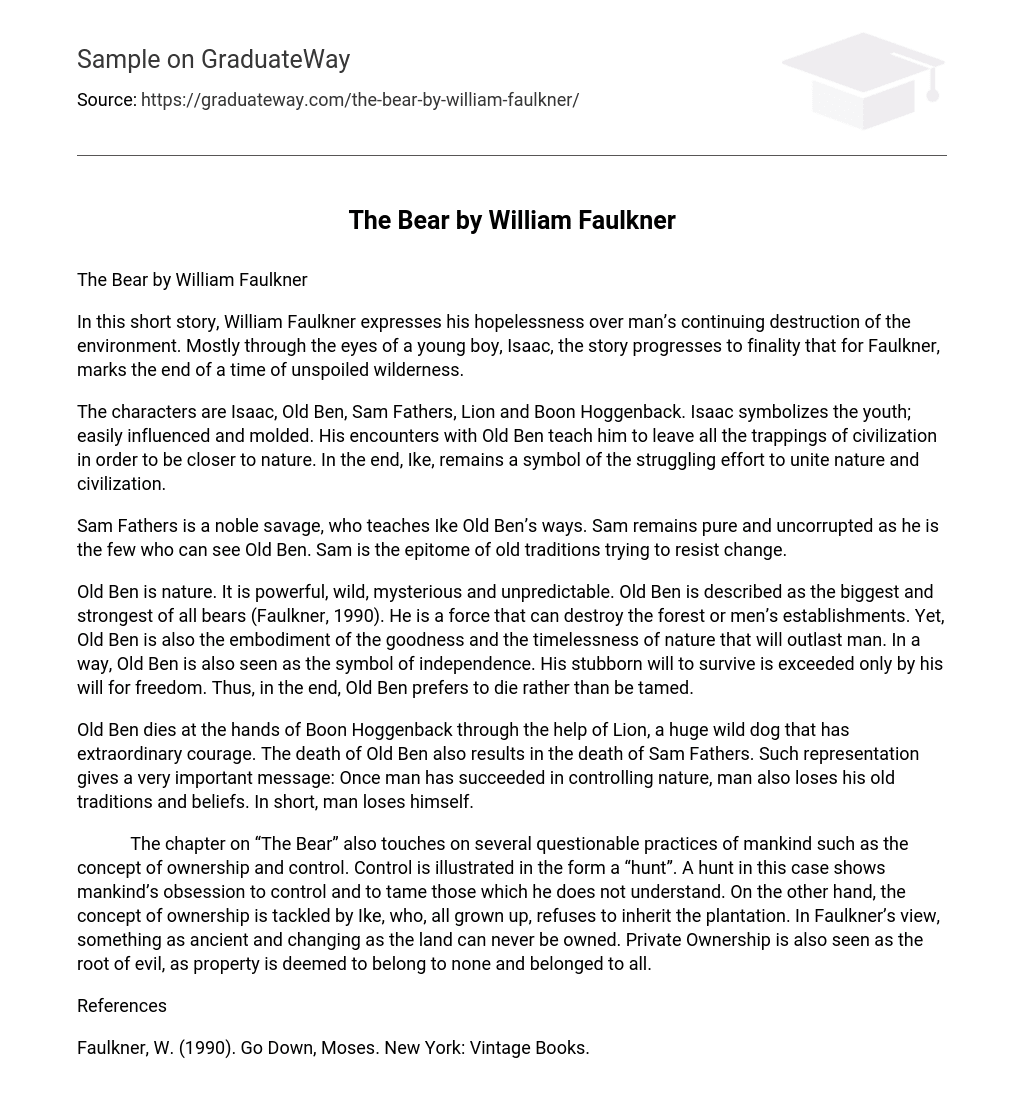In this short story, William Faulkner expresses his hopelessness over man’s continuing destruction of the environment. Mostly through the eyes of a young boy, Isaac, the story progresses to finality that for Faulkner, marks the end of a time of unspoiled wilderness.
The characters are Isaac, Old Ben, Sam Fathers, Lion and Boon Hoggenback. Isaac symbolizes the youth; easily influenced and molded. His encounters with Old Ben teach him to leave all the trappings of civilization in order to be closer to nature. In the end, Ike, remains a symbol of the struggling effort to unite nature and civilization.
Sam Fathers is a noble savage, who teaches Ike Old Ben’s ways. Sam remains pure and uncorrupted as he is the few who can see Old Ben. Sam is the epitome of old traditions trying to resist change.
Old Ben is nature. It is powerful, wild, mysterious and unpredictable. Old Ben is described as the biggest and strongest of all bears (Faulkner, 1990). He is a force that can destroy the forest or men’s establishments. Yet, Old Ben is also the embodiment of the goodness and the timelessness of nature that will outlast man. In a way, Old Ben is also seen as the symbol of independence. His stubborn will to survive is exceeded only by his will for freedom. Thus, in the end, Old Ben prefers to die rather than be tamed.
Old Ben dies at the hands of Boon Hoggenback through the help of Lion, a huge wild dog that has extraordinary courage. The death of Old Ben also results in the death of Sam Fathers. Such representation gives a very important message: Once man has succeeded in controlling nature, man also loses his old traditions and beliefs. In short, man loses himself.
The chapter on “The Bear” also touches on several questionable practices of mankind such as the concept of ownership and control. Control is illustrated in the form a “hunt”. A hunt in this case shows mankind’s obsession to control and to tame those which he does not understand. On the other hand, the concept of ownership is tackled by Ike, who, all grown up, refuses to inherit the plantation. In Faulkner’s view, something as ancient and changing as the land can never be owned. Private Ownership is also seen as the root of evil, as property is deemed to belong to none and belonged to all.
References
Faulkner, W. (1990). Go Down, Moses. New York: Vintage Books.





